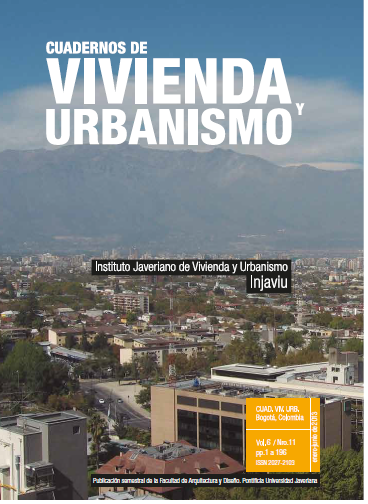Abstract
The present paper defines the late motorisation of Latin America as its outdated arrival to mobility patterns and urban sprawl characterised by an increased utilisation of private vehicles. It states that the turning point took place the moment developing countries became main producers and consumers of private vehicles. Furthermore, it evidences its historic correspondence to a development model already obsolete in developed countries, of which the autopoietic mechanisms between cities, the oil interval and the propagation of private vehicles has been severely questioned. This paper intends to promote scholarly debate by making a contribution to the study of problems involving mobility and urbanisations set forth by Vasconcellos, specialists of the Corporación Andina de Fomento (CAF), Lizárraga and others. It offers a hypothetical reflective research, with a deductive-inductive design, qualitative techniques of participant observation and interviews with social, institutional and productive actors, carried out in Mexico, Brazil, Colombia and Argentina.
This journal is registered under a Creative Commons Attribution 4.0 International Public License. Thus, this work may be reproduced, distributed, and publicly shared in digital format, as long as the names of the authors and Pontificia Universidad Javeriana are acknowledged. Others are allowed to quote, adapt, transform, auto-archive, republish, and create based on this material, for any purpose (even commercial ones), provided the authorship is duly acknowledged, a link to the original work is provided, and it is specified if changes have been made. Pontificia Universidad Javeriana does not hold the rights of published works and the authors are solely responsible for the contents of their works; they keep the moral, intellectual, privacy, and publicity rights.
Approving the intervention of the work (review, copy-editing, translation, layout) and the following outreach, are granted through an use license and not through an assignment of rights. This means the journal and Pontificia Universidad Javeriana cannot be held responsible for any ethical malpractice by the authors. As a consequence of the protection granted by the use license, the journal is not required to publish recantations or modify information already published, unless the errata stems from the editorial management process. Publishing contents in this journal does not generate royalties for contributors.


